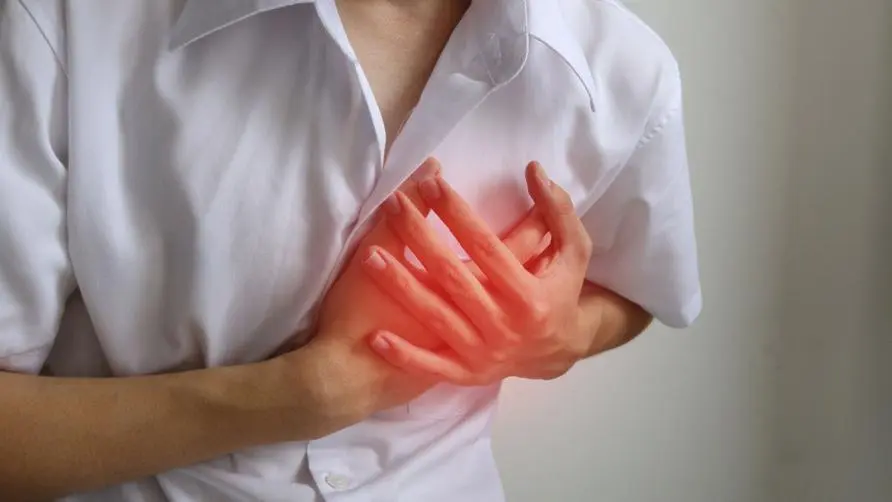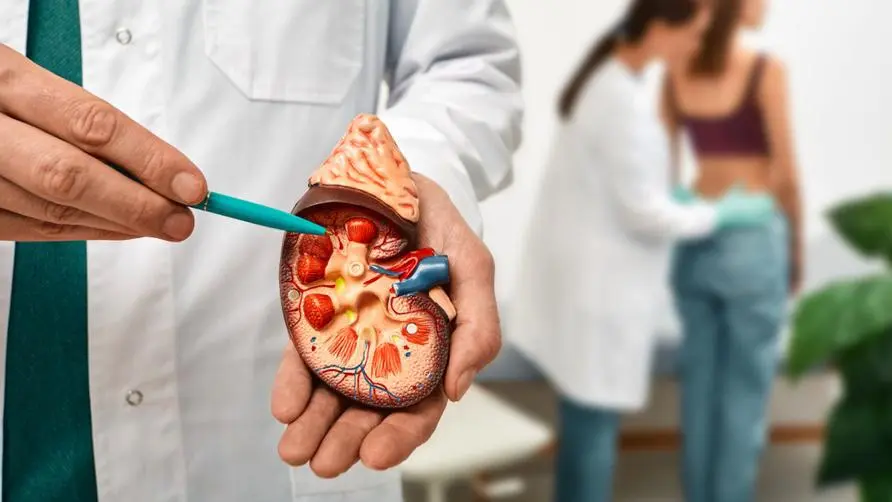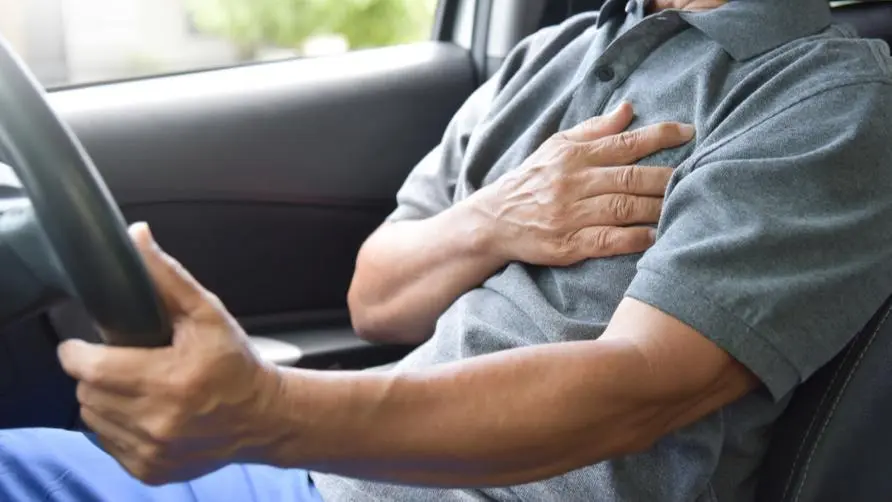Plaques in large blood vessels are easy to peel off due to changes in temperature! Doctors reveal "atypical signs" of acute myocardial infarction: 1 group of people should be careful

The number of young patients with myocardial infarction is increasing! Doctor: Be careful if your physical endurance is significantly reduced
The temperature has recently turned from warm to cold, and drastic temperature changes are more likely to cause acute myocardial infarction. Huang Chenyou, the attending physician of the Department of Cardiology at the Cardiovascular Center of Cathay General Hospital, pointed out in an interview that a young manager of the Beipiao ethnic group, about 40 years old, suddenly felt chest tightness and pain after socializing at night. When he was rushed to the hospital, he found that three coronary arteries were seriously blocked, and his blood vessel condition For example, an elderly person in his 60s recovered successfully and was discharged after three stents were placed during surgery.
Dr. Huang Chenyou said that in clinical practice, tools such as electrocardiogram, cardiac ultrasound and blood drawing can help determine which blood vessel caused myocardial infarction. Usually during an acute coronary heart disease attack, in addition to the problem of blood vessel stenosis, there are also many blood clots and thrombi floating in the blood vessels that need to be removed. The key to the prognosis is the rescue time. The ideal situation is to open the blood vessel within 12 hours, and no later than 24 hours.
Dr. Huang Chenyou pointed out that the young patient had a history of hypertension but it was not stably controlled. Fortunately, I was alert to my symptoms, and my cardiac systolic function was slightly impaired in subsequent follow-up. However, the symptoms of blood vessel blockage are sometimes relatively subjective, and it is difficult for most people who work statically for a long time and have no exercise habits to detect them on their own. Once physical strength and endurance are significantly reduced during exercise or you are out of breath, or you are still extremely uncomfortable even after resting, the blood vessel blockage is often quite serious.
As the temperature changes drastically during the change of seasons, many patients with acute myocardial infarction are sent to the hospital for emergency treatment, including many young people. Dr. Huang Chenyou reminds office workers and young adults to maintain a healthy lifestyle after work to reduce the risk of cardiovascular blockage.
Awakened by chest tightness while sleeping! Ventricular fibrillation, 20 electric shocks to save life
Can cardiovascular blockage also occur during sleep? Dr. Huang Chenyou said that a 63-year-old man was recently admitted to the hospital because he felt abnormal chest tightness and night sweats while sleeping. He was sent to the hospital and was determined to have acute myocardial infarction. Moreover, there was no blood flow after the blood clot blocked the patient, so he needed to undergo cardiac catheterization immediately. As soon as the patient entered the operating room, he lost his heartbeat and developed “ventricular fibrillation” which was potentially fatal. The patient’s heartbeat exceeded 300 beats per second. He needed more than 20 consecutive electric shocks and emergency cardiac catheterization to save his life.
Dr. Huang Chenyou pointed out that if patients with acute myocardial infarction lose their heartbeat and blood pressure, they may need to be installed with extracorporeal membrane oxygenation to have a chance of rescue. Fortunately, the rescue was immediate and the patient’s blood pressure was restored before the extracorporeal membrane oxygenation team was in place.
It is worth noting that this patient also had severe obstruction in all three coronary arteries and had a history of diabetes. When people with diabetes experience acute cardiovascular events due to neuropathy, they may present with atypical symptoms such as asthma, abdominal pain, nausea and vomiting. It is more important to be alert in advance and seek a cardiologist for differential diagnosis in a timely manner to avoid missing the opportunity for rescue.
Weather changes cause neurological disorders and unstable plaques are prone to rupture
Dr. Huang Chenyou said that sudden changes in temperature can easily increase cardiovascular events. When the autonomic nerves in the outer membrane of blood vessels are out of balance, unstable plaques in the blood of people with vascular stenosis are more likely to peel off and rupture. Therefore, during the change of seasons or days with large temperature differences, you must pay special attention to keeping your body warm. Especially in the early morning and evening, you should keep warm and windproof to avoid abnormal contraction of blood vessels, and pay attention to keeping your neck warm.
Dr. Huang Chenyou reminded that the temperature difference changes greatly at the turn of winter and spring. Try to avoid going out for exercise at 5 or 6 o’clock in the morning to avoid being unable to call for help in an emergency. People over the age of 5 and 60 are recommended to exercise together to increase the safety of outdoor activities. Warm up before exercise and the intensity should be within your ability. People who are taking blood pressure, blood sugar and cardiac medicines should take their medicines regularly or keep emergency medicines handy.
Dr. Huang Chenyou pointed out that although the causes of chest pain are different, two cardiovascular-related diseases, including acute myocardial infarction and aortic dissection, both have a very high fatal risk. Treatment and rescue have more golden time, and death will occur for every hour delayed. The rate may increase by more than 5%. If you feel you have abnormal chest pain symptoms, it is recommended to go to a cardiology department or cardiac surgery department for medical examination as soon as possible to avoid delayed treatment, which may lead to irreversible myocardial defects, resulting in impaired cardiac function or even life-threatening consequences.
Further reading:





